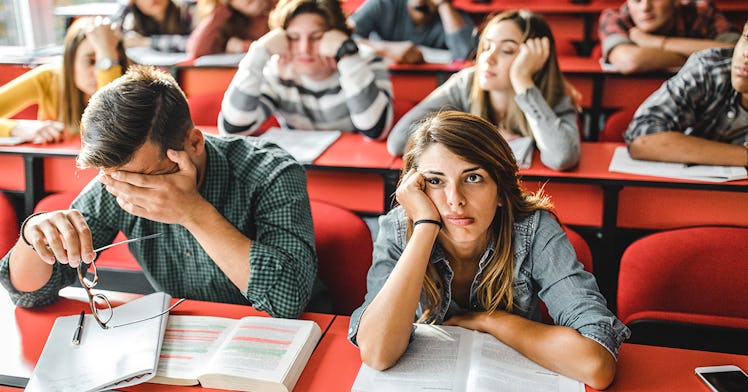Don’t Ban ‘The Great Gatsby.’ Sex and Violence Belong in English Class.
Arguing about racy, controversial books is what 10th grade is all about.

Public schools in Alaska used the cover of a global crisis to quietly ban a number of classic books deemed no longer suitable to be part of their high school curriculum. Among the books banned are The Great Gatsby, which contains sexual references,” Catch-22, which contains “scenes of violence,” and I Know Why the Caged Bird Sings, which contains “antiwhite messaging” (whatever the hell that means). To state the abundantly obvious, this is stupid and bad. Great works of literature address the human condition, which contains sexual references, scenes of violence, and uncomfortable conversations about race. Censorship is bad.
But let’s go a bit deeper here and make a more specific claim. Bad censorship is bad. And this is some truly bad censorship.
I’ll come out against public schools exposing my kid to disturbing media just for the hell of it. No problem. For example, if I learned that my daughter was going to spend social studies class watching Saw II, I might get my ass on the PTA and try and prevent that from happening. That said, if there was a compelling reason to watch Saw II — Jigsaw’s commentary on late capitalism or the way the movie reads as a metaphor for the gutting of regulation in the post-Clinton era, I could be convinced. Why? Because we should probably err on the side of school being interesting (and English class doubly so).
One of the only genuinely positive social experiences guaranteed to American high schoolers is fighting over The Jungle, Why the Caged Bird Sings, Invisible Man, and yes, old sport, The Great Gatsby. These fights have raged for decades. They’re fun. If, as an Alaska school board member has suggested, A Christmas Carol might scan as a pro-socialist text that’s fine. Kids can fight about that. The problem is that the so-called adults in charge here aren’t interested in fostering disagreement and teaching kids the invaluable skill of argumentation. They are interested in passing judgment from high atop Denali.
Let’s just pretend all of this is true: There’s “too much” fucking in Gatsby, Maya Angelou didn’t like white people, and Dickens was floating the idea that capitalism kind of sucks. Shouldn’t kids grapple with these things? Isn’t that the point of school? According to the Alaskan school board, the answer to that is “nope,” which makes one wonder what they think the point of school is in the first place. If it’s not a place to experience new ideas, it’s nothing more than daycare for larger babies. And that seems to be what the biggest of the babies are going for here.
“These are teachers, not counselors,” said one school board member, who probably watched Dead Poet’s Society and thought the students should be reading The Babysitter’s Club or maybe just taking a nap.
Now, I fully understand the reason why some people on the left want to cancel the old “canon” and why some people on the right are made uncomfortable by it. Compromise doesn’t always feel good. But the Alaska school board decision scans less as a product of conservative backlash or leftist cancel-culture than it does a raid by the anti-fun police. Telling teachers to stop teaching Gatsby or Caged Bird feels like the literary equivalent of rooting for John Lithgow in Footloose. Let’s make everything drab! Beige 2020!
In Alaska, there’s already some pushback from the community and local bookstores about this measure, which is encouraging. But, the people I feel bad for are the kids going back to school in the Fall (maybe) who won’t get to argue with their teachers — or each other — about challenging books. If you can’t fight about books in high school, what are you even there for?